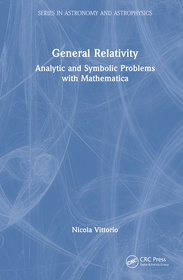
The Self in the Cell
Narrating the Victorian Prisoner
Sorozatcím: Literary Criticism and Cultural Theory;
-
20% KEDVEZMÉNY?
- A kedvezmény csak az 'Értesítés a kedvenc témákról' hírlevelünk címzettjeinek rendeléseire érvényes.
- Kiadói listaár GBP 160.00
-
76 440 Ft (72 800 Ft + 5% áfa)
Az ár azért becsült, mert a rendelés pillanatában nem lehet pontosan tudni, hogy a beérkezéskor milyen lesz a forint árfolyama az adott termék eredeti devizájához képest. Ha a forint romlana, kissé többet, ha javulna, kissé kevesebbet kell majd fizetnie.
- Kedvezmény(ek) 20% (cc. 15 288 Ft off)
- Kedvezményes ár 61 152 Ft (58 240 Ft + 5% áfa)
Iratkozzon fel most és részesüljön kedvezőbb árainkból!
Feliratkozom
76 440 Ft

Beszerezhetőség
Becsült beszerzési idő: A Prosperónál jelenleg nincsen raktáron, de a kiadónál igen. Beszerzés kb. 3-5 hét..
A Prosperónál jelenleg nincsen raktáron.
Why don't you give exact delivery time?
A beszerzés időigényét az eddigi tapasztalatokra alapozva adjuk meg. Azért becsült, mert a terméket külföldről hozzuk be, így a kiadó kiszolgálásának pillanatnyi gyorsaságától is függ. A megadottnál gyorsabb és lassabb szállítás is elképzelhető, de mindent megteszünk, hogy Ön a lehető leghamarabb jusson hozzá a termékhez.
A termék adatai:
- Kiadás sorszáma 1
- Kiadó Routledge
- Megjelenés dátuma 2003. március 21.
- ISBN 9780415943550
- Kötéstípus Keménykötés
- Terjedelem304 oldal
- Méret 229x152 mm
- Súly 720 g
- Nyelv angol 0
Kategóriák
Rövid leírás:
Michel Foucault's writing about the Panopticon in Discipline and Punish has dominated discussions of the prison and the novel, and recent literary criticism draws heavily from Foucauldian ideas about surveillance to analyze metaphorical forms of confinement: policing, detection, and public scrutiny and censure. But real Victorian prisons and the novels that portray them have few similarities to the Panopticon. Sean Grass provides a necessary alternative to Foucault by tracing the cultural history of the Victorian prison, and pointing to the tangible relations between Victorian confinement and the narrative production of the self. The Self in the Cell examines the ways in which separate confinement prisons, with their demand for autobiographical production, helped to provide an impetus and a model that guided novelists' explorations of the private self in Victorian fiction.
TöbbHosszú leírás:
Michel Foucault's writing about the Panopticon in Discipline and Punish has dominated discussions of the prison and the novel, and recent literary criticism draws heavily from Foucauldian ideas about surveillance to analyze metaphorical forms of confinement: policing, detection, and public scrutiny and censure. But real Victorian prisons and the novels that portray them have few similarities to the Panopticon. Sean Grass provides a necessary alternative to Foucault by tracing the cultural history of the Victorian prison, and pointing to the tangible relations between Victorian confinement and the narrative production of the self. The Self in the Cell examines the ways in which separate confinement prisons, with their demand for autobiographical production, helped to provide an impetus and a model that guided novelists' explorations of the private self in Victorian fiction.
TöbbTartalomjegyzék:
Introduction Solitude, Surveillance, and the Art of the Novel; Chapter 1 Narrating the Victorian Prisoner; Chapter 2 Prisoners by Boz: Pickwick Papers and American Notes; Chapter 3 Charles Reade, the Facts, and Deliberate Fictions; Chapter 4 “How Not to Do It”: Dickens, the Prison, and the Failure of Omniscience; Chapter 5 The “Marks System”: Australia and Narrative Wounding; Chapter 6 The Self in the Cell: Villette, Armadale, and Victorian Self-Narration; conclusion Narrative Power and Private Truth: Freud, Foucault, and The Mystery of Edwin Drood;
Több

The Moral Brain ? A Multidisciplinary Perspective
9 555 Ft
8 600 Ft

Hidden in Plain Sight: Eating Disorders in the Black Community
7 639 Ft
6 493 Ft








